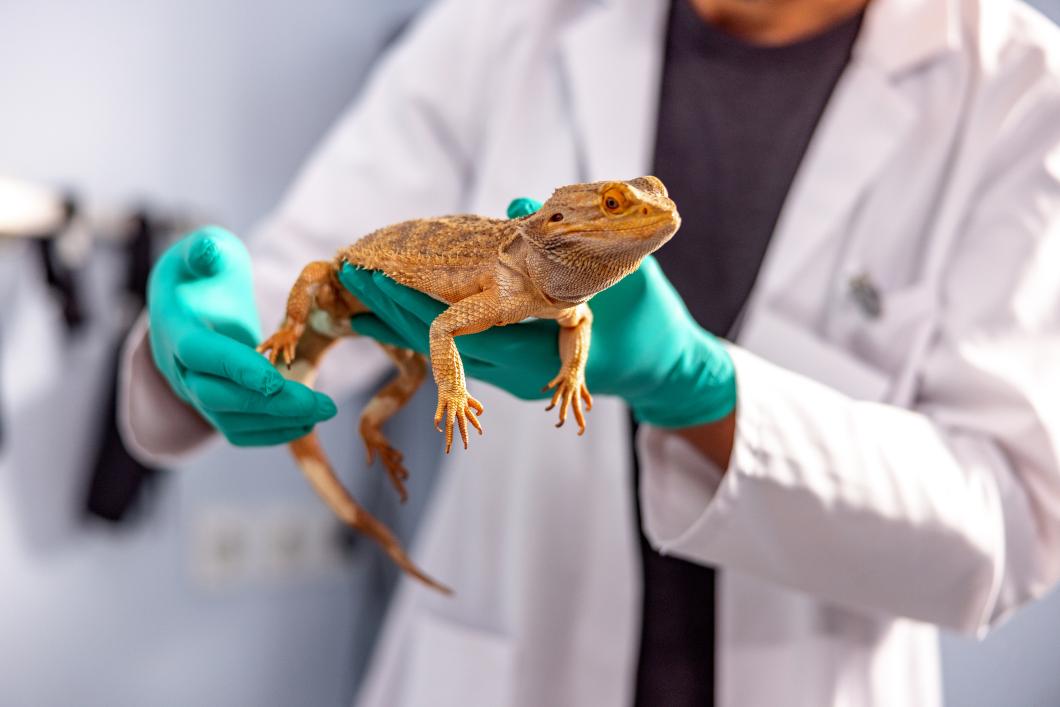Understanding the Link Between Oral Health and Overall Health in Pets

When it comes to pet health, oral hygiene is easy to overlook. How important is whatever goes on in your pet’s delightfully stinky-breathed mouth, anyway?
More important than you might think! Just as in humans, poor oral health can lead to issues in the rest of your pet’s body. This is as true for rabbits, parrots, and lizards as it is for dogs and cats.
That’s why the team at Texas Avian & Exotic Hospital wants to share how—and why—to stay on top of pet dental health.
The Pet Health Connection for Avian and Exotic Species
In avian and exotic pets, dental or beak health issues can be early signs of bigger health concerns. Parrots, for instance, need to use their beaks for everything from eating to grooming. Any overgrowth or malformations can point to nutritional issues or metabolic disorders.
For small mammals like guinea pigs and rabbits, misaligned teeth (malocclusion) can cause them a lot of pain and make it hard to eat. In species like these, teeth are open-rooted, which means they grow constantly throughout the life of the pet.
These small mammals must have the right tooth alignment so they can keep up with chewing and grinding down those teeth.
In reptiles, oral infections like mouth rot (stomatitis) can spread to other areas of the body, weakening the immune system and vital organs.
The health connection is clear: neglecting oral care in these pets can lead to cascading health issues that are difficult to treat.
Promoting Dental and Oral Health in Exotic Pets
Preventive care is the best way to maintain oral health for your exotic pet. Regular check-ups with an avian or exotic pet veterinarian can help you spot and treat oral health issues early. At Texas Avian & Exotic Hospital, we know small mammals, birds, and reptiles inside and out. We offer the following oral health services for exotic pets:
- Dental cleaning
- Dental exams
- Skull and dental X-ray
- CT interpretation
- Beak trims for birds
- Tooth filing for small mammals
- Dental extractions
- Advanced dental surgery
- Treatment of oral and dental abscesses
Along with getting routine dental exams with an exotic and avian pet veterinarian, you can help keep your pet healthy in a few key ways.
Birds
Birds explore everything with their beaks. They need plenty of perches made from different, natural materials in all sorts of textures and diameters to encourage healthy beak wear. Chewable toys made of natural fibers or untreated wood help your avian friends keep up with their beak strength and shape.
Small mammals
For many types of small mammals, their teeth never stop growing. In the wild, small mammals eat high-fiber materials that wear their teeth down, which is why their teeth must continuously grow.
When you have small mammals as pets, you must mimic nature.
So, give your small mammal high-quality hay like Timothy or orchard grass. The coarse texture naturally wears down those long, long teeth! Supplement this with crunchy veggies like celery, carrots, and broccoli.
Reptiles
Reptiles have distinct needs based on their species. Herbivorous reptiles like iguanas and tortoises need plenty of dark, leafy greens. Omnivorous and carnivorous species need specific protein sources to support their unique dental structures. Make sure you know the ins and outs of what your reptile needs.
Your reptile’s habitat also plays an important role in oral health. An enclosure with the right temperature and humidity level supports immune function and helps prevent infections like stomatitis. UVB lighting is also vital for many reptiles because it helps them produce vitamin D3, which is necessary for absorbing calcium.
Calcium, in turn, keeps their bones and teeth strong. Without UVB light, reptiles can develop weak bones and dental problems.
No More Confusion
Oral and dental health can be intimidating when you have an exotic or avian pet. The team at Texas Avian & Exotic Hospital can give you a detailed breakdown of exactly how to keep your pet’s oral health strong.
And if you have any issues with your pet’s oral health, we have the tools and expertise to help! Call us at (817) 953-8560 to schedule an appointment.
